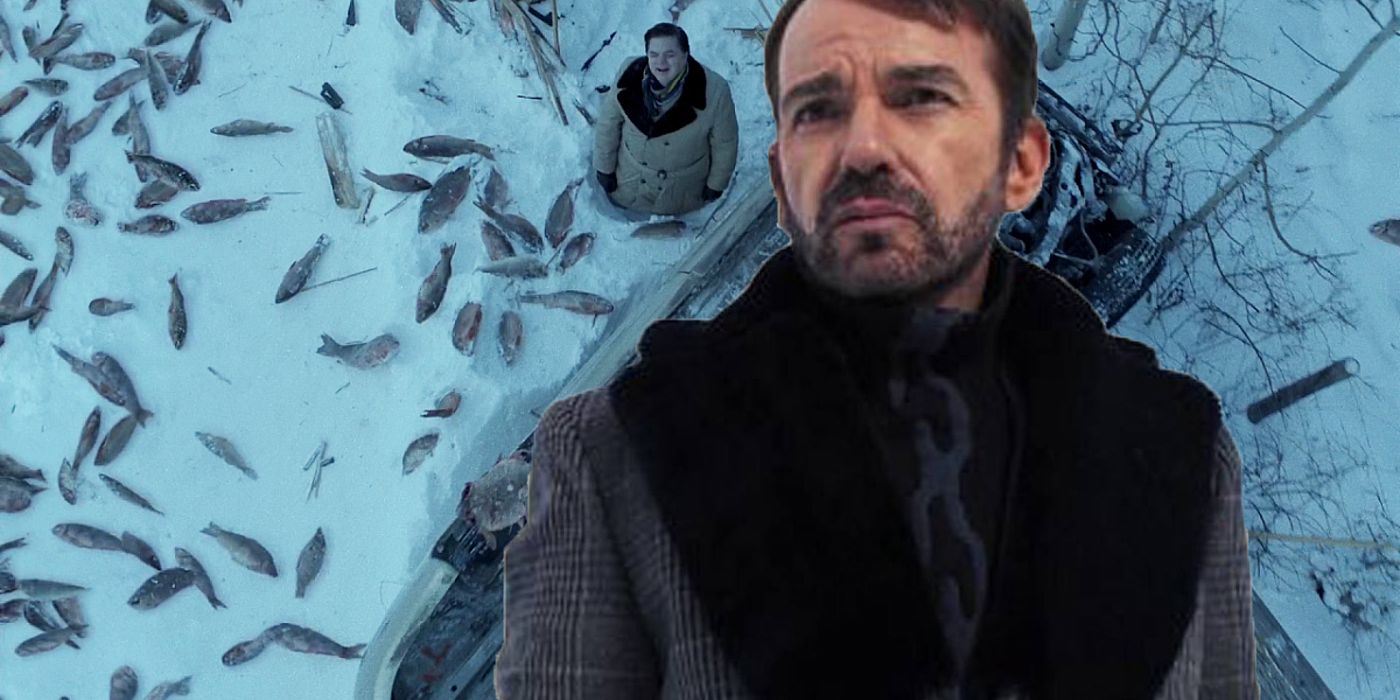
In FX's Fargo, a show famous for its darkly delightful mix of the grounded and the absurd, the unforgettable moment when fish rain down from the sky about halfway into the first season established the show's embrace of strange and mysterious phenomena as part of its central theme. Although the event is more thematically significant than it is an important piece of the plot, the show does provide a logical explanation as to why it occurred.
The falling fish incident is the coda to one of the more controversial storylines in season 1 of Fargo, capping off an already out-of-place subplot with a final bit of Biblical happenstance. While the season's other characters are busy further meddling in the Fargo Crime Syndicate, antagonist Lorne Malvo psychologically torments the "Supermarket King of Minnesota" Stavros Milos, who had hired the hitman to track down his blackmailer. The story serves to establish how the unstoppable force of evil that is Billy Bob Thornton's Malvo operates.
Despite quickly discovering the identity of the blackmailer, Malvo decides to take the opportunity to sow chaos and covertly tortures Stavros using his own version of the plagues of Egypt. Stavros believes that his misfortunes are a punishment from God for building his supermarket empire with the money he dug up on the side of an icy road. He buries the money back where he found it in an attempt to save himself from divine wrath, but he suffers the final plague anyway when his son Dmitri gets caught in the fish storm and dies in a freak car accident.

This unexplainable discord and disconnection to the main plot is part of the appeal of showrunner Noah Hawley's storytelling, as well as clear influence from the Coen brothers' filmography that inspired the show's tone. When Dmitri's car gets bombarded with raining fish and crashes, audiences may suspect that it was Malvo completing his poetic scheme. However, a news report in the next episode explains that the region's snowstorm lifted a school of fish from a nearby body of water and dropped them onto dry land, a rare, but not entirely unheard-of real occurrence called a "rain of animals." This, of course, means that Malvo is innocent of this particular act of God.
This sixth episode, entitled "Buridan's Ass" in a reference to a thought paradox concerning rational decision-making, presents a host of philosophical ideas that live up to its title. In a way, Malvo is a form of divine judgment, a walking engine of violence and destruction with ungraspable motives. Unbeknownst to Stavros, it's the devil who is tormenting him, not God. Malvo may not have been responsible for the death of Dmitri, but negotiating with him is as futile as when Stavros begs God to forgive him. Much like the UFO in season 2, the Biblical references of season 1 purposefully mystify the story of Fargo, inviting the audience to contemplate the disorder of its seemingly orderly Midwestern communities.
from ScreenRant - Feed https://ift.tt/2YJj5MF

No comments: